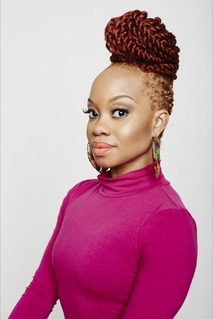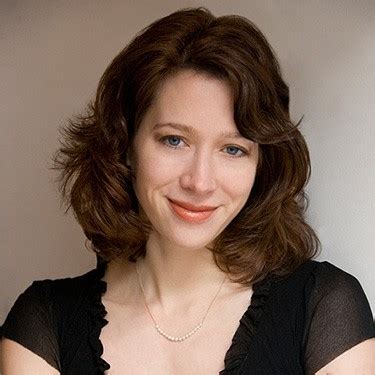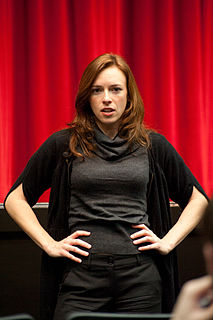A Quote by Emma Donoghue
I think I read Susan Brownmiller's classic book called "Femininity" when I was about 16. So yeah, it's been part of my mindset since a very early age. To me, what's crucial is to tell women's stories but also to tell them in a way that is fearless.
Related Quotes
I'm very grateful to be in a position now where I have a lot more control to tell the stories I want to tell. I feel no obligation to tell any one story. I will tell you my interest mostly lies in telling stories about empowered women, but I don't feel it's an obligation. But I do feel like I am servicing a voice.
What I think is great about Pippin, specifically, and I wouldn't make this generalization about all musicals, is that it is about how we tell stories and the way stories are very subjective. How we tell some things and leave other things out in the way The Princess Bride is or The Wizard of Oz is, which both have a framing device.
I remember reading a book called, "From Niggas To Gods, Part One" by Andre Akil; the book was so easy to read, it was in capital letters with exclamation marks because Akil was screaming at us. It was about getting out of the mindset that this system has put you in. This mindset that makes you feel like your circumstances are permanent and wherever you're born is where you're going to end up. You have to realize who you are.
Very early on, I was writing stories, and I was amazed at Spielberg's movies when I was young. Coming from the countryside, I was so impressed with the way he was able to tell stories and the way he was able to deal with le merveilleux - the wonders. Very quickly, he became for me a massive hero, and he introduced me to the world of a director.
I wanted to be an actor ever since I was five. My grandparents - my mom's parents in New York - were stage actors. I think indirectly I wanted to do it because of them. My grandfather would tell me stories about Tennessee Williams and actors he worked with in New York. He had such a respect for acting and such a love for storytelling about that world. I grew up hearing him tell tales of it.They were never encouraging me or discouraging me to take part. They were always feeding me with theater.







































